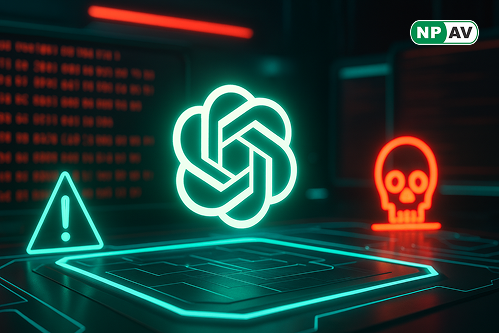Npav Lab
-
Read moreSentinelLABS uncovers MalTerminal, an early LLM-enabled malware using OpenAI's GPT-4 to dynamically create ransomware or reverse shells at runtime, evading detection and marking a new era in AI-driven cyber threats.
-
Read moreZero Salarium's EDR-Freeze proof-of-concept uses Windows' MiniDumpWriteDump to freeze EDR and antivirus software indefinitely, offering a stealthy alternative to BYOVD attacks without third-party drivers or detection risks.
-
Posted: September 22, 2025Views: 33Read moreTrend Micro warns of cybercriminals using AI to create fake CAPTCHA pages that trick users into revealing sensitive data, boosting phishing success rates and challenging cybersecurity defenses.
-
Read moreA sophisticated phishing attack uses Facebook’s URL redirect service to trick users into entering login credentials on fake pages, stealing emails, phone numbers, and passwords.
-
Read moreRussian regional airline KrasAvia suffers a cyberattack causing website outage and halting online ticket sales. Flight operations switch to manual control as investigation continues.
-
Read moreThe Everest ransomware group alleges stealing 600,000 lines of BMW’s internal documents, including audit reports and engineering files, and threatens public release. BMW has yet to confirm the breach or respond.
-
Read moreA zero-click flaw in ChatGPT’s Deep Research agent allowed attackers to exfiltrate sensitive Gmail data via hidden email prompts. OpenAI patched the service-side vulnerability in 2025 to prevent stealthy data leaks from its cloud infrastructure.
-
Read moreInsight Partners suffered a data breach from a social engineering attack that exposed personal data from HR and finance systems. The breach went undetected for nearly three months before ransomware deployment. Affected users receive identity protection.
-
Read moreThe Pixie Dust attack targets vulnerabilities in Wi-Fi Protected Setup (WPS) to recover router PINs offline, allowing attackers to access wireless networks. Disabling WPS or updating firmware is essential to prevent this exploit.
-
Read moreConor Fitzpatrick, creator of BreachForums, was sentenced to three years in prison for operating a massive cybercriminal forum with over 330,000 users and 14 billion stolen records. DOJ and FBI continue crackdown on dark web crime.















